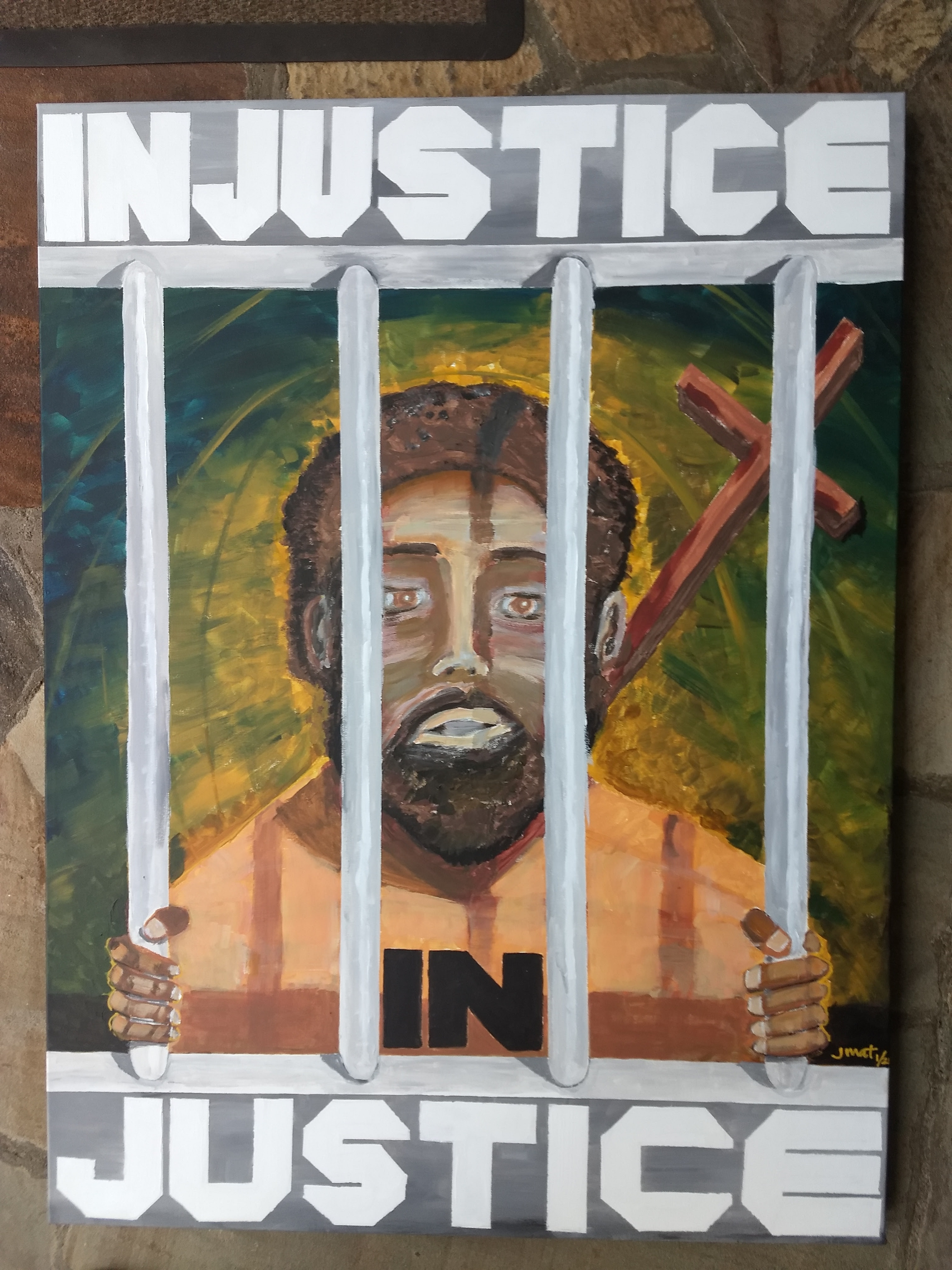Third Sunday in Ordinary Time
“The Spirit of the Lord is upon me, because he has anointed me to bring glad tidings to the poor. He has sent me to proclaim liberty to captives … and recovery of sight to the blind … to let the oppressed go free.” Lk. 4:14
In January, one year ago, the President of the United States delivered his Inaugural address. On March 1 of this year, he will be giving his State of the Union speech.
Taken together, these two presentations amount to his telling all of us what he “stands for,” what’s important to him, what his “platform” or mission is.
In today’s reading from the Gospel of Luke, that’s precisely what Jesus does.
He tells us in very clear language what he “stands for.”
He’s telling us that he is the Christ, the long-awaited Messiah. In doing so, Jesus makes it very clear that his goals, his “platform,” his “state of the union” of all humankind will be unlike any messiah the Jewish people ever dreamed of or maybe even wanted.
What we also hear in today’s Gospel reading is how specific Jesus is about his mission. There is to be no misunderstanding or confusion.
Jesus’ goal, and by extension our goal as His followers, is to announce – by both word and actions – that our lives are dedicated to tell those who live on the margins of society, those who are oppressed by the weight of hunger and poverty and sickness, those who are held captive by addiction and trauma and other mental health disorders – we are committed to proclaiming to them that they are loved and cherished and passionately embraced by the God that Jesus called Abba.
But even more than that, in Jesus’ “Inaugural address” in today’s Gospel, we are being called to make his value system our own: a view of life that in effect turns everything upside down; a view of life that brings about a revolution in the way we think and in the way we act.
Because what Jesus talked about in his “inaugural address,” and further fleshed out in his Beatitudes – was, in effect, his “State of the Union” – the announcement of what he consistently referred to in the Gospels as “the reign of God” or the “kingdom of God.”
By that Jesus meant:
What the world would look like if God would become the focal point of people instead of the egos and cravings and the false gods that presently dominate.
What’s very important, too, is that the reign of God Jesus spoke of was not a political revolution that would drive the Romans out regardless of how oppressive they were.
Instead, Jesus’ proposed revolution was one that would involve a depth of faith that would bring about a conversion of heart to such an extent that a whole new value system would begin to dominate the lives of people – one that would no longer emphasize wealth and the acquisition of power and violence and war and self-glorification.
The revolution Jesus is proposing in his “State of the Union” address would involve an entirely different way of being with each other – a way free of competition and rivalry and revenge and turf battles. It would be a revolution that would be grounded in prayer, centered in the Word, and nourished by the gathering around the table of the Lord.
It would be a revolution, in other words, that would develop a new way of relating to one another, a new kind of community – one that would become the Body of Christ, as St. Paul speaks of so powerfully in the second reading from Corinthians we heard today:
“In one Spirit we were all baptized into one body … and we were all given to drink of oneSpirit.”
We are to become “Christ’s body.” We are to become so united to Christ, and to the value system he died for, that we are to become one with Him!
This is Jesus’ inaugural address and his State of the Union all wrapped into one.
Sadly, the reality is that Jesus’ powerful message has never been very well received from the first moment it was spoke up until now. In fact, Luke goes on to tell us that after the people heard his “Inaugural Address”, they were so threatened by it that they were “filled with rage.”
They even went so far as to want to murder him!
Why?
Because what Jesus is proposing would require significant changes in their attitudes and behaviors. It would require major surgery, if you will, to their hearts and their souls.
It would mean, for example, that they would now have to overcome long held biases and prejudices against non-Jews and women and the lepers and the poor. It would mean that they would have to become inclusive people to the point of welcoming the stranger.
It would mean that they would have to be merciful instead of mean spirited, forgiving rather than grudge holders, grateful instead of spiteful, compassionate rather than judgmental, welcoming instead of guarded, sharing rather than holding to their possessions for dear life.
It would mean that they would have to be a people who championed the common good as being superior to their own personal welfare, the needs of the community as holding primacy over their own private needs and desires.
It was all too much for them. And so, they rejected Jesus and the value system he so dearly embraced.
That, of course, was 2000 years ago. How about now?
What’s your personal response to Jesus’ “inaugural address”?
Where are you when it comes to the common good vs. your own personal welfare? Where are you when it comes to compassion and service and forgiveness and sharing?
Have we made the words that Jesus spoke so long ago a mission, not just for Him, but for each one of us who has been baptized into His body and will continue to approach His table?
The Spirit of the Lord is upon me, because he has anointed me to bring glad tidings to the poor. He has sent me to proclaim liberty to captive and recovery of sight to the blind, to let the oppressed go free.”
Ted Wolgamot, Psy.D.







